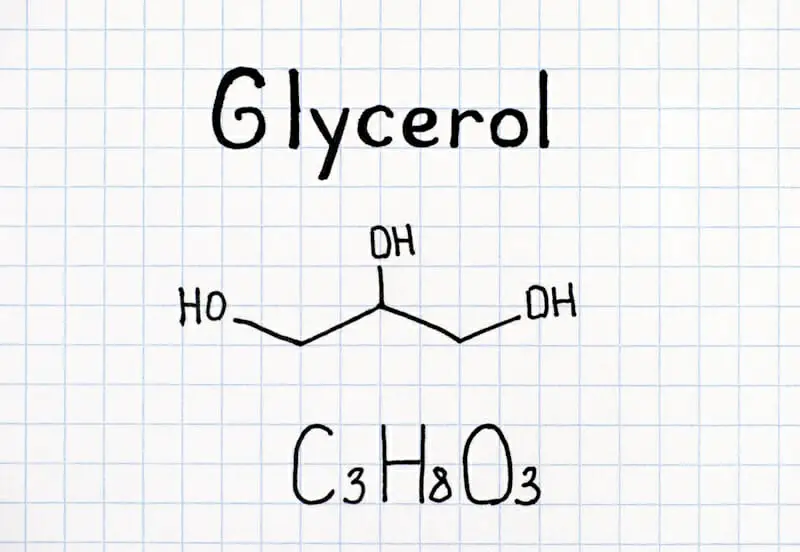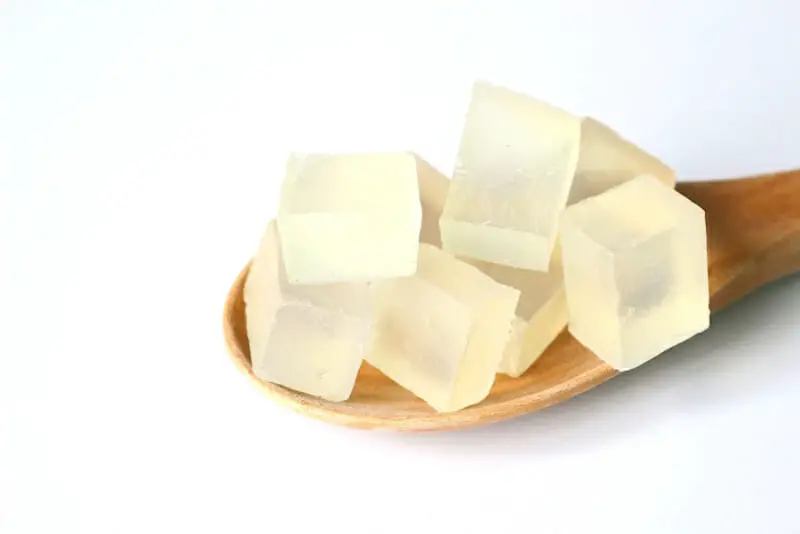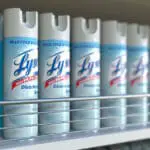You know that feeling when you're about to light a candle, and you hesitate because you're unsure if it's safe? Well, if you're dealing with glycerin, you're not alone in your concern. Glycerin is a widely used substance with a variety of applications, but its flammability is a topic of concern for many.
This article will delve into the question of whether glycerin is flammable, along with information on its disposal and handling. So, if you're someone who wants to master the safe use of glycerin, read on to learn more about this intriguing substance.

Is Glycerin (Glycerine) Flammable?
Glycerin, also known as glycerol or vegetable glycerin, isn't considered highly flammable, though it will catch fire with some effort. And, if exposed to an ignition source, glycerin can produce thick smoke and dangerous fumes. However, burning glycerin isn't necessarily hazardous if proper care is taken beforehand.
What Is Glycerin?
Glycerin is a viscous, colorless, odorless liquid widely used in various industries, including cosmetics and pharmaceuticals. It’s a type of carbohydrate that occurs naturally in plant and animal matter and the human body.
It is a common ingredient in skincare products and is known for its moisturizing properties. It's a non-toxic substance that is generally safe to handle, but proper safety precautions should be taken to avoid potential risks.
What Is Glycerin Used For?
Glycerin is widely used in the United States, particularly in the food industry, as it's a natural sweetener that's safe to consume. It's a key ingredient in soap production, where it acts as a moisturizer for the skin.
Glycerin is also commonly found in pharmaceuticals, where it's used as a solvent and a vehicle for active ingredients. In addition, it's used in cosmetics to help moisturize and smooth the skin, and it's often added to hair care products to provide shine and manageability.
Furthermore, glycerin is used in the production of e-liquids for vaping, where it provides a smooth and sweet flavor.
What Is The Flash Point Of Glycerin?
If you want to ensure the safe handling of glycerin, it's essential to know its flash point. Glycerin is flammable, but not highly so, with a flash point of approximately 160°F (71°C). However, it can produce thick smoke and dangerous fumes when exposed to an ignition source.
Keeping glycerin away from ignition sources, such as open flames and sparks, is crucial. Always have fire extinguishers available nearby in case of a fire. Proper safety precautions should be taken to avoid potential explosions or fire hazards when handling glycerin.

Is Glycerin Explosive?
While glycerin itself isn't explosive, it can become explosively volatile when mixed with other combustible materials. It reacts pretty intensely with strong oxidants, which is where the danger lies. For example, combining glycerol with sulfuric and nitric acids creates nitro-glycerine, which is used in the manufacturing of dynamite.
So while you don’t need to be concerned about your glycerin exploding by itself, you should take extra caution and do some research before mixing it with other substances.
What Happens When Glycerin Is Heated?
When glycerin is heated, it can produce thick smoke and dangerous fumes. As the temperature rises, glycerin will begin to boil and eventually reach its boiling point of 290°C.
At this point, glycerin will decompose into acrolein, which is toxic and can cause skin damage and respiratory irritations. It's important to note that burning glycerin isn't necessarily dangerous if proper care is taken beforehand. But, it should still be handled with caution due to its potential hazards.
What Do You Mix With Glycerin To Make Fire?
Get ready to ignite your curiosity! If you're looking to mix glycerin with other household items to create a fire, there are a few things to keep in mind. While glycerin itself is flammable, it's not recommended to mix it with other chemicals.
However, some people combine glycerin with potassium permanganate or potassium chlorate to create a fiery effect. It's important to note that this should only be done under proper supervision and safety precautions, as it can be very dangerous.
Additionally, if you're using glycerin for vaping, only use it with propylene glycol (PG), as mixing it with other chemicals can be harmful.
What Are The Hazards Of Glycerin (Glycerol)?
Watch out for the potential dangers of handling glycerin, as it can be a ticking time bomb waiting to ignite like a lit match near a gas leak. Glycerin is a flammable liquid and can release toxic fumes when exposed to fire. It can also cause skin and eye irritation upon contact and respiratory irritations upon inhalation.
If ingested in large amounts, it can cause stomach upset, nausea, and diarrhea. Always follow the recommended guidelines for disposing of glycerin properly. And remember never to mix it with potent oxidizing agents like chlorine, as it can cause a chemical reaction and release toxic gases.

How To Use Glycerin Safely
To ensure your safety when handling this versatile substance, it's important to know how to use glycerin safely.
While glycerin is flammable, it doesn't necessarily pose a significant fire hazard. However, it's still important to keep it away from heat sources and direct sunlight.
Additionally, glycerin should be handled with care to avoid skin and eye contact and inhalation of fumes.
Proper storage in a cool, dry, well-ventilated area away from incompatible materials and ignition sources is also crucial.
Lastly, glycerin attracts moisture, so keeping it sealed tightly is essential to prevent contamination and ensure optimal use.
Is Glycerin Toxic?
Glycerin is generally non-toxic and safe to handle. However, the fumes caused by heating glycerin are toxic, and inhaling them should be avoided. Ingestion should also always be avoided, as it can be very harmful to health, especially to pets and children.
Final Thoughts
You now know that glycerin is flammable, but not highly so. But it's still important to handle it with caution due to its potential fire hazards. Glycerin is a versatile substance found in many products, from personal care items to pharmaceuticals and food.
It's generally non-toxic and highly soluble, making it a popular ingredient in many industries. As the use of glycerin continues to expand, it's important to maintain proper safety measures to prevent accidents and ensure its safe handling and disposal.








